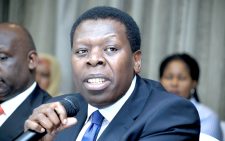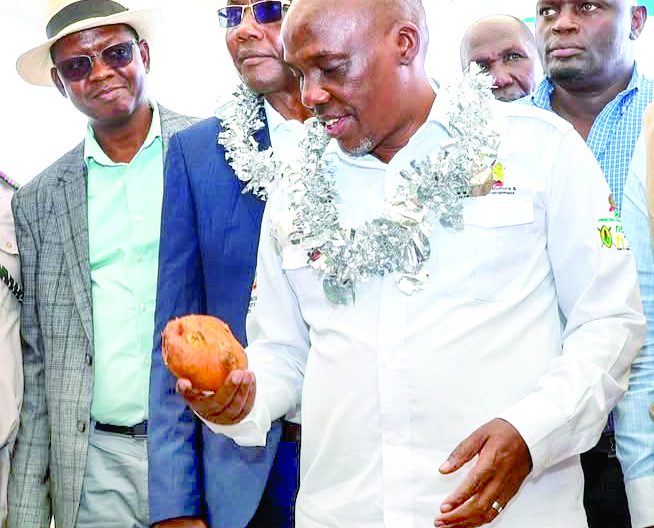How KRA plans to pay Sh55M for office tea

Kenya Revenue Authority (KRA) is planning to raise expenditure on tea by Sh33 million, from Sh22.7 million to Sh55.7 million, according to the agency’s annual procurement plan for the 2024/2025 financial year.
Ironically, although the agency has increased the budget for tea, it will spend Sh3 million on long-life milk and Sh2 million on sugar.
An additional Sh10 million will be spent on drinking water and an extra Sh3.6 million splashed on dispenser drinking water.
These revelations have put KRA on the spot on how it intends to spend millions of shillings on functions unrelated to its core mandate of revenue collection. It also comes at a time when the government is struggling to cut out unnecessary expenditures.
Tax collection efficiency
According to tax agency’s annual procurement plan for the 2024/25 financial year, the top priorities on the taxman’s budget are a tree-planting exercise, increased allocation for outsourcing tea for the staff, hotel expenses, air tickets for management and procuring drinking water.
The plan shows that the agency aims to spend Sh80 million in marketing the electronic Tax Invoice Management System (eTIMS), a new tax invoicing platform introduced in March last year.
Through the eTIMS platform, KRA sought to improve transparency in tax remittance, curb tax evasion and enhance efficiency in tax collection.
KRA also sought to cast the net wider by on-boarding the informal sector and small businesses, not formally registered to pay taxes, to submit them through a short code portal.
Despite millions of shillings being spent to market a single tax collection product, KRA will spend Sh8.5 million on annual taxpayer month and customer service week activities, which include publicity and awards.
The taxman has also allocated another Sh80 million for the provision of mobile airtime during this financial year and an extra Sh3.5 million for telephone airtime.
Further, the agency plans to channel Sh79 million towards the refurbishment of the Kenya School of Revenue Administration (Kesra).
On top of the frivolous expenditure on beverages that will cost the taxpayers Sh74 million, KRA has allocated Sh14 million towards air tickets for board directors as well as an additional Sh8 million for air travel.
In the year under review, KRA has allocated Sh26 million for conference facilities while an additional Sh66 million will be used on research, customs and trade conferences.
The taxman plans to spend Sh7.5 million on tree-planting while another Sh38.5 million will be spent on training of staff. To secure its facilities, Sh249 million will be spent on procurement of guarding services.
The extraneous procurement has put KRA under sharp criticism for seeking increased budget allocations from Treasury, disguised as resources to enhance its capacity to collect taxes more effectively, yet the funds are diverted to non-essential functions.
The revelations on KRA’s spending come at a time when the government is grappling with a mounting debt burden from local and international lenders prompting President William Ruto’s administration to direct its agencies to embrace austerity measures in order to stabilise the economy.
In this regard, the tax agency’s procurement estimates for the current financial year paint a picture of a body out to trample on its own mandate of collecting more revenue for the cash-strapped government.
Financial autonomy
The tax collector is also seeking some form of financial autonomy by proposing that it needs to retain two per cent of total tax revenue collected for its operations, a move that has sparked tensions with the National Treasury.
“To ensure the successful implementation of planned activities, we will negotiate with the National Treasury for the allocation of at least 2 per cent of the previous year’s revenue,” KRA said when it launched an earlier strategic document.
Despite being among one of the most the heavily-funded government agencies, KRA, which estimates that it requires a total of Sh283.5 billion to attain operational efficiency over the next five years, has frequently fallen short of hitting its revenue targets.
The revenue collector aimed to raise Sh2.768 trillion by the end of the 2023/24 fiscal year, but the amount was revised downward to Sh2.5 trillion.
While expressing his frustration over the underperformance of the taxman, National Treasury Cabinet Secretary, John Mbadi, urged the agency to adopt innovative and technologically-advanced strategies to bolster revenue collection.
“Our modernisation journey must align with our objectives and those of taxpayers. This approach will not only benefit taxpayers but will also significantly enhance our revenue mobilisation efforts,” Mbadi stated.
The CS added that KRA must ensure higher tax compliance, improve taxpayer experiences and reduce expenditure to minimise market distortions and tax refund pressures.
Identify complex patterns
In response to CS Mbadi’s call for the use of technology in tax collection, KRA said it is planning to leverage Artificial Intelligence (AI) technology to bolster its efforts in apprehending tax evaders.
KRA Commissioner General Humphrey Wattanga said that the implementation of AI technology is expected to significantly improve the taxman’s detection capabilities, as the system can analyse millions of data points and identify complex patterns that would be challenging for human auditors to uncover.
“The new AI-powered system will be capable of mining vast troves of data to detect patterns and anomalies that could indicate fraudulent tax practices,” Wattanga explained.
The Auditor General Nancy Gathungu, in her annual report, showed that KRA under-collected income tax revenue by Sh147 billion in the 2022/23 financial year thus depriving the government of essential funds to undertake development projects.
“A total of 1,486 taxpayers reported a gross turnover of Sh2.54 trillion under their VAT obligations but only Sh2.05 trillion under income tax, resulting in an under-declaration of Sh490 billion.
“The under-declared turnover of Sh490 billion under the income tax obligation would have generated a corporation tax of Sh147 billion, which the Authority failed to collect,” the report stated.










